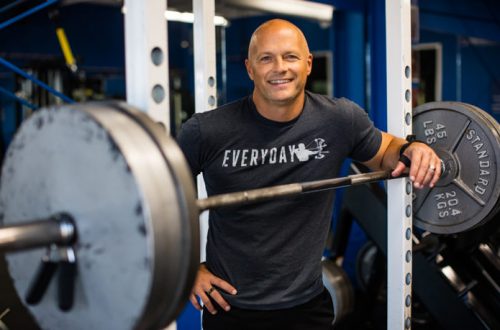You Can’t Rush Love
There’s something about finding a special someone who brings so much joy, love and happiness into our lives. It could be the excitement and uncertainty of meeting someone new that makes it so exhilarating, or maybe it’s those take-your-breath-away dates or tiny moments that make your heart skip a beat. However, sometimes people can be so keen on finding a significant other that they skip over necessary steps in a relationship — which could come back to haunt them later.
“We are in love with the idea of falling in love,” says Carrie Austin, a marriage and family therapist at True Change Counseling, who has been helping individuals, couples and families for over 17 years.
Even though the adventure of finding love can be one of the most spectacular parts of life, people’s infatuation with the idea of falling in love can lead to skipping the true beginning stages of a relationship. If these crucial beginning stages are glazed over, and a strong foundation is not thoroughly built, then problems may arise later — in any kind of relationship, Austin says.
A huge part of any relationship, whether it be friendly or romantic, is a secure foundation that is built on open communication, she says. From this ideal beginning is when strong relationships can form and flourish.
According to University of Texas Professor M.I. Knapp’s Relationship Model, there are two sides to relational maintenance: the coming together (escalation) side and the coming apart (termination) side. The escalation of a relationship in Knapp’s model begins with initiating and then moves on to experimenting, intensifying, integrating and then bonding — all of which are necessary to fulfill before moving on to the next step.
“I just see more and more folks rushing in. They want so badly to get to that bonding place that they skip a lot of those other stages,” Austin says. “And then you’re adding on potentially marriage and kids and, you know, mutual assets — buying houses and things like that. Then, the pressure comes on, and without a good foundation, things start crumbling. You start the coming apart stages.”
In addition, Austin says that people experience these beginning stages in different ways based on their personal experiences and past relationships. For example, if someone has experienced hurt or infidelity in the past, such circumstances could create a physical and/or emotional response to that person when entering a new, unfamiliar relationship. Such a state left neglected or untreated through self-care or counseling could put that person’s future relationships in jeopardy.
Austin says that a heightened alert mixed with fear and anxiety can even induce a physical stress response on the body. According to a study in the U.S. National Library of Medicine, “romantic relationships can play multiple roles in the intersection of stress, physiological response and health.”
The study also found that intense stress coming from relationship conflict can increase cortisol levels, which can lead to “negative emotionality, learning/memory deficits and immuno-suppression.” Basically, a heightened amount of the stress hormone, cortisol, which can be stimulated from a turbulent relationship, can lead to effects on your body, mood and behavior such as anxiety, irritability, fatigue and overeating or under-eating.
“I think when stress levels are to the point that it’s affecting your health,” Austin begins, “I’ll tell folks we need to go back to basics.”
Austin says this is when she asks her clients about what their diets, sleep and self-care habits look like. Sometimes, in the beginning of a relationship, it can be so exciting that people will often forget their own health along the way, she adds.
“In the healthiest of relationships, both people are taking care of themselves, rather than getting lost in the other person’s needs,” Austin says.
In healthy relationships, Austin says part of sharing life with someone is learning an appropriate amount of interdependence in which each other’s needs are met while each person still has their own sense of self.
“I think a lot of times, when you’re in a stressful relationship, or it can even be the beginning of the relationship — you can forget to eat,” Austin says. Skipping meals is a common self-care need that happens all too often in an unhealthy relationship.
“I think, you know, cluing in to some of those signs and giving attention to that, whether that be seeing the doctor, paying attention to rest — doing those things. We work on stress management and getting a better handle on that,” Austin says. “I talk with couples about recognizing what’s in your control to change and what’s not.”
In the beginning stages of a relationship, there is a rush of endorphins which can lead to a surge in energy. “You’re on this high,” Austin says, “and so you don’t go to the gym, you skip a meal or you’re staying up late talking on the phone all hours of the night.”
“I think that’s part of that [idea of]holding on to a sense of self and tuning in to the things that will allow you to give your best to the relationship starting out, to build a solid foundation and go through all the stages,” Austin says.
“Recognizing the patterns that you create in those beginning stages kind of goes back to the foundation,” she adds.
After practicing for almost two decades, Austin says that a lot of the time with couples, she will see them skip over the crucial experimental phase (according to Knapp’s Model), and they end up not really knowing each other.
Austin says she sees a lot of success in her clients, especially when they are in a better place in terms of their sense of self. In some cases, she’s even seen couples who have broken up or divorced find their way back to each other and remarry. Austin says such success is seen when her clients have taken care of their own health first — emotionally, physically and in their overall well-being.




